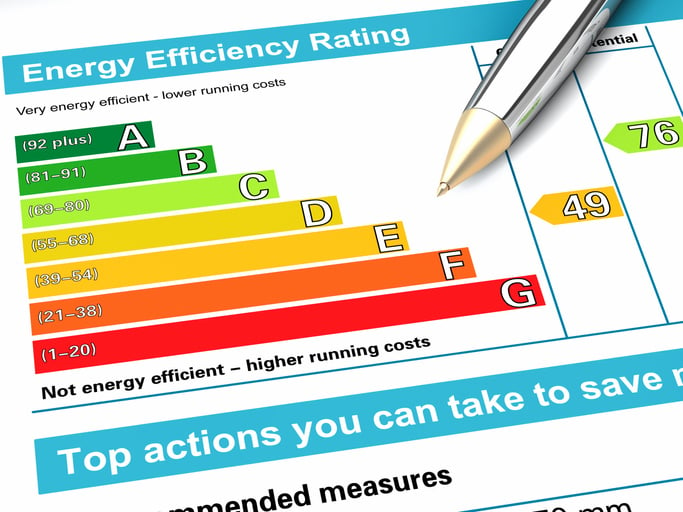Whether you're a landlord, tenant, or homeowner, you've probably come across an Energy Performance Certificate (EPC). An EPC, which carries ratings from A (the most efficient) to G (the least efficient), is required to sell or rent out a property. While there's no minimum rating to sell, the current minimum rating to rent out a property is E.
And that's about to change.
As it stands, in 2025, newly rented properties will need to have an Energy Performance Certificate (EPC) rating of a C or above. It's widely understood that this deadline is likely to be pushed back to 2028, but that has yet to be confirmed.
And while this deadline may seem like a long way off, consider this: according to the planning insights platform LandTech, only 39% of private rental properties in London meet that threshold now.
That means 61% of properties will be competing for a limited supply of builders and contractors to reach the new minimum threshold. The point is - there isn't cause for panic, but it's also important not to leave things to the last minute.

Fortunately, at Paramount more than half of all properties we let already meet this higher standard. And as I write this, we're working with our landlords to get D-G rated properties in line with the upcoming changes.
In light of this, we want to demystify what an EPC is and why you even need one (many people assume wrong!).
What is an EPC?
This is a document that provides information on the energy efficiency of a building. This comes in the form of:
- A score between 1 and 100 (called the Standard Assessment Procedure or SAP score) and
- A rating from A (most efficient) to G (least efficient) that's based on the SAP score
How is an EPC rating calculated?
An EPC assessor looks at how much energy your property uses per square meter with things like heat and light, and how much it loses, for example, through poor insulation. The assessor is looking at your heating system efficiency, insulation, energy source (electric vs gas), what type of shower you have and whether you have any renewable energy technologies.
They use all of this information to calculate your property's SAP score, which determines your energy efficiency letter rating between A ang G.
An EPC will show your current rating, and also your potential rating that's achievable with specific improvements in the areas listed above.
When do I need an EPC?
If you're planning to sell, rent out, or build a property in London, you'll need a valid EPC. This EPC will need to be easily accessible in your marketing to potential buyers and renters.
Why do I need an EPC?
Some people have the impression that an EPC represents how environmentally friendly a property is - and this is actually only partially true.
An EPC primarily helps buyers and renters understand the energy costs associated with living in a property.
For example, it's true that better insulation and more efficient heating is both more environmentally friendly and cheaper to run. A gas boiler, however, is less enironmentally friendly than electric, but cheaper to run in terms of energy costs, so it will rate higher on an EPC.
How long does an EPC last?
An EPC produced today is valid for 10 years.
Who performs an EPC?
EPCs are produced by an accredited assessor. We work with Assessment Hive (check them out here), but you can also search for an assessor on the government website here.
EPCs and the property market
If your property has an EPC in the range of C or above, it's something to shout about! It's an indication that running costs will be low, which is a selling point that's only becoming more popular amongst renters and buyers in the market.
Having an EPC means you can demonstrate that you've taken steps to comply with energy efficiency regulations and help reduce the carbon footprint of your property.




